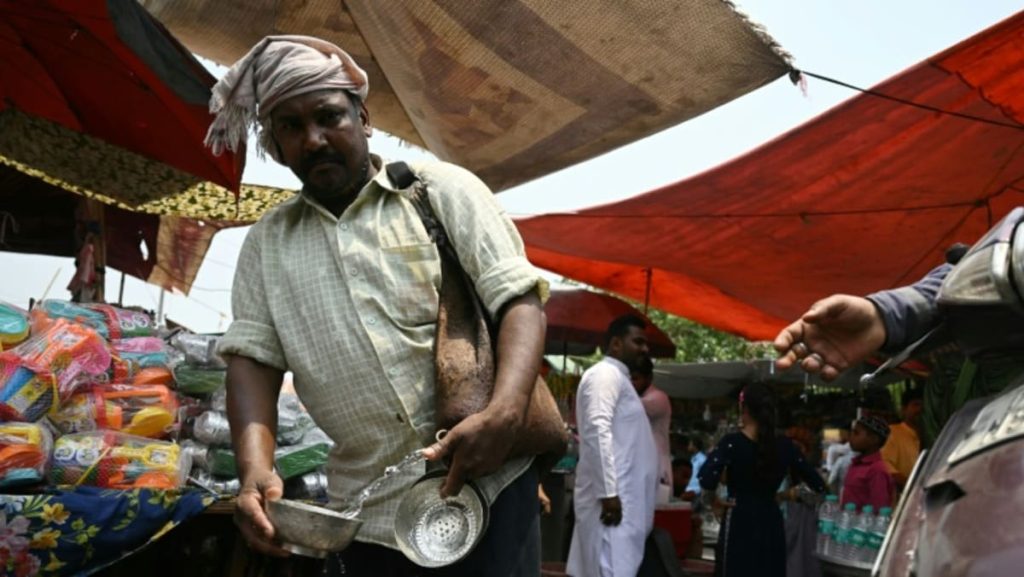Indian authorities in Delhi have ordered schools to close early for the summer holiday after temperatures soared to 47.4 degrees Celsius, with the city experiencing a severe heatwave. Officials made the decision to shut schools with immediate effect, cutting short the term by a few days in response to the extreme heat. The India Meteorological Department has issued warnings of severe heatwave conditions, with Delhi’s Najafgarh suburb recording the highest temperature in the country.
In addition to Delhi, other states such as Haryana, Madhya Pradesh, Punjab, and Rajasthan have also ordered schools to close in response to the scorching temperatures. India has a history of high summer temperatures, but research has shown that climate change is causing heatwaves to become more frequent, longer-lasting, and more intense. The Indian Meteorological Department has expressed concern about the health impacts of the heatwave, especially on vulnerable populations such as infants, the elderly, and those with chronic illnesses.
The extreme heat wave conditions in India serve as a reminder of the ongoing impact of climate change on the country. In May 2022, parts of Delhi recorded temperatures as high as 49.2 degrees Celsius, highlighting the severity of the situation. As temperatures continue to rise and heatwaves become more intense, authorities are taking measures to protect the well-being of residents, particularly vulnerable groups who may be at a higher risk of heat-related health issues.
The decision to close schools early for the summer holiday is a proactive measure to ensure the safety and well-being of students and staff in the face of the extreme heat. By heeding the warnings of the Indian Meteorological Department and taking appropriate action, officials are working to mitigate the impact of the heatwave on the population. The closure of schools aims to protect students from exposure to dangerous temperatures and reduce the risk of heat-related illnesses.
As the effects of climate change continue to be felt around the world, including in India, it is crucial for authorities to prioritize measures that address the increasing frequency and intensity of heatwaves. By implementing strategies to protect vulnerable populations, raising awareness about the risks of extreme heat, and taking proactive steps to reduce greenhouse gas emissions, India can work towards building resilience to the impacts of climate change. The early closure of schools in response to the severe heatwave is a step in the right direction towards ensuring the safety and well-being of the population during high-temperature events.


